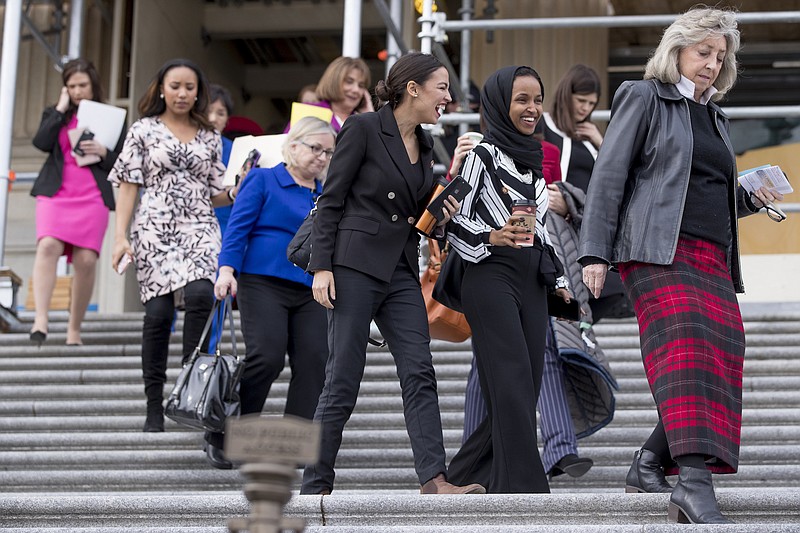WASHINGTON - "This is what democracy looks like."
It's the chant heard again and again at the women's marches the day after Donald Trump was inaugurated and echoed later in mobilizations on behalf of gun sanity and the Affordable Care Act, in defense of immigrants and refugees, and in support of democracy itself.
Those determined gatherings were, indeed, part of what democracy looks like. There is a reason the First Amendment to our Constitution asserts "the right of the people peaceably to assemble" immediately after it guarantees freedom of speech and freedom of the press. The assembly right is intimately linked to the next one on the First Amendment's list: the people's right "to petition the government for a redress of grievances."
One of the main goals of tyrants is to keep dissenters shut in their homes and out of view. Only when they find each other can advocates of change realize their potential power.
But democracy also looks like what we saw on the floor of the House of Representatives last Thursday. Through use of the ballot, fortified by exceptional feats of organization and mobilization, voters changed the face of government in our country - in both a literal and figurative sense.
The contrast between the diversity of the Democratic side of the House (by gender, race, ethnicity and religion) and the visible homogeneity on the Republican side has been much noted.
The electoral rebuke to Trump (measured by the Democratic advantage in House races of nearly 10 million votes) showed that those who marched and demonstrated understood that peaceful assembly was only the first step toward achieving their goals. In cities and towns, red and blue, large and small, they met in church basements, coffee shops, living rooms and libraries. There, they planned on how to persuade their neighbors to elect a majority that would stand up to the president and his pliant Congressional allies. Then they executed the hard work of door-knocks, phone calls, social-media conversations, fundraising and texts. And they prevailed.
It is thus appropriate that the new majority gave the hallowed designation H.R. 1 to the bill they presented Friday with the purpose of expanding democracy while pushing back against corruption. The headline aspects of the legislation took aim at Trump era sleaze, including a requirement that presidential candidates release their tax returns, and tightening of White House ethics rules.
But the guts of the bill are all about making our system more democratic: automatic voter registration along with limits on voter purges and other methods that states use to block access to the ballot box, especially for minorities and the young. It would also ban contributions from corporations controlled by foreign entities.
Central to the proposal is a new campaign-finance system designed to limit big money's power in elections. It would create a series of incentives, including matching funds for donations of $200 or less, to encourage candidates to rely on small donors rather than the typically self-interested generosity of the wealthy.
H.R. 1 will be accompanied by a new Voting Rights Act restoring the federal government's ability to end discriminatory voter suppression, ripped away by the Supreme Court's misguided 2013 ruling in Shelby County v. Holder.
Leaders of the Republican Senate dismissed the House effort and said they'd ignore it. But this doesn't reduce its importance. Democracy is a long game. It involves pressuring those who resist reform (see: peaceable assembly above) and offering proposals future electorates can eventually endorse (see: The New Deal, which brought to life many ideas first floated by progressives in the 1920s).
At this moment of trial for all who treasure democratic institutions, the world could use an example of politicians whose solutions to our problems involve more democracy, not less.
Washington Post Writers Group
